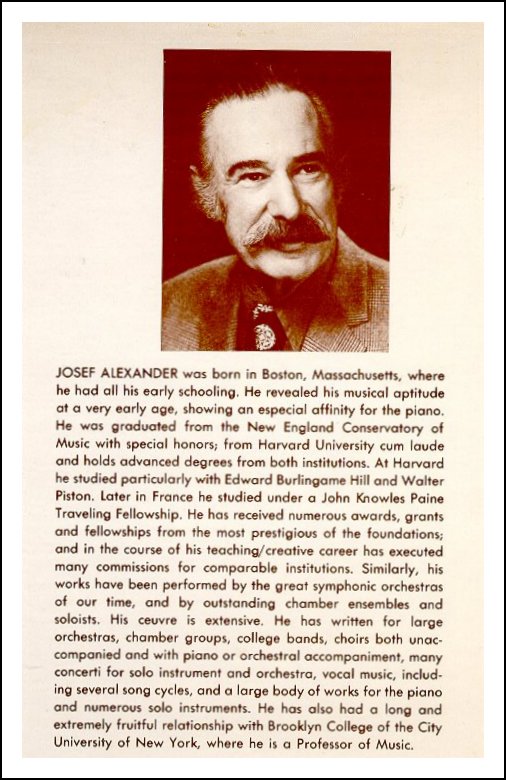

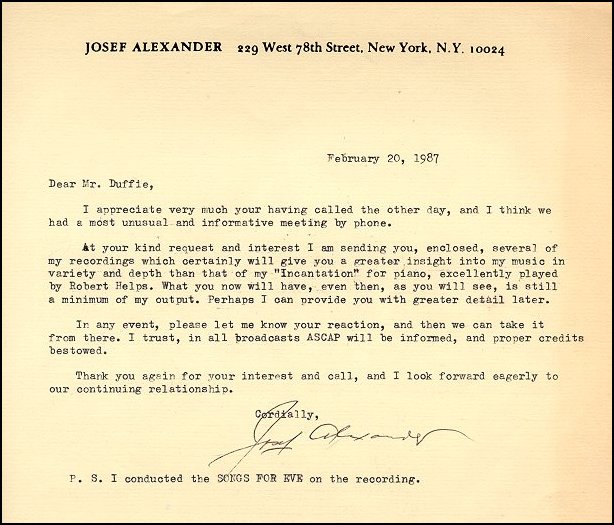 Prior to the first call, I had sent him a written request,
and after we spoke he sent a typewritten response (shown at right) and also included a copy
of an upcoming program which featured his latest piece being given its world
premiere [shown later on this webpage].
After that, when we corresponded he sent me hand-written letters, perhaps
indicative of a warm and personal feeling.
Prior to the first call, I had sent him a written request,
and after we spoke he sent a typewritten response (shown at right) and also included a copy
of an upcoming program which featured his latest piece being given its world
premiere [shown later on this webpage].
After that, when we corresponded he sent me hand-written letters, perhaps
indicative of a warm and personal feeling.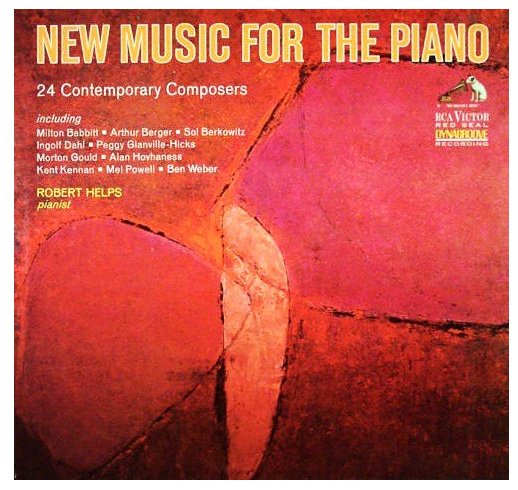
|
Robert Helps in a 20th
Century compendium "New Music for the Piano: 24 Contemporary Composers,"
Ingolf Dahl's Fanfares (1958), Arthur Berger's
Two Episodes (1933),
Kent Kennan's
Two Preludes (1951), Samuel Adler's Capriccio (1954), Hall Overton's Polarities No. 1 (1958), Milton Babbit's
Partitions (1957), Miriam Gideon's Piano Suite No. 3 (1951), Sol Berkowitz's
Syncopations (1958), Ben Weber's
Humoreske op. 49 (1958),
Leo Kraft's
Allegro Giocoso (1957), Paul A. Pisk's Nocturnal Interlude (undated), Mel Powell's Etude (1957), Morton Gould's Rag-Blues-Rag (undated), Vivian Fine's Sinfonia and Fugato (undated), Alan Hovhaness' Allegro on a Pakistan Little Tune op. 104 No.
6 (1952), George Perle's
Six Preludes op. 20B (1946),
Norman Cazden's Sonata op. 53 No.3
(1950), Joseph Prostakoff's Two Bagatelles
(undated), Ernst Bacon's
The Pig Town Fling (undated),
Helps's Image (1957), Mark
Brunswick's Six Bagatelles
(1958), Earl Kim's Two Bagatelles (1950/1948), and Josef
Alexander's Incantation (1964).
Underwritten by The Abbey Whiteside Foundation. Cover art is by Sid Maurer. Glossy full-size 10-page booklet with extensive notes on all composers and works featured herein, written by Joseph Prostakoff. The RCA LP was originally issued in 1966, and later re-issued on CRI in 1971. When it was re-mastered and issued on a CRI CD in 2001, the works by Berger, Kraft, and Fine were omitted. |
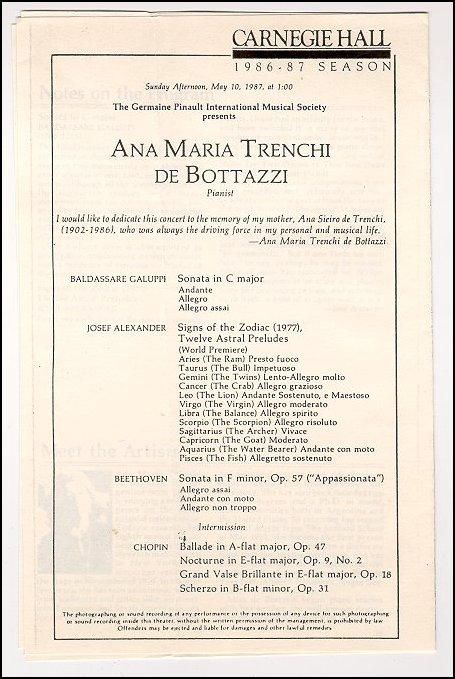 BD:
[At this point I explained just a bit more
about the details of my programs, and how they are put together for broadcast.]
I like to chat with the composer for about an hour, and depending on the
sound quality of the phone connection, I either use portions of the tape,
or I transcribe comments from it and read them myself. I then select
(usually) three works, and besides introducing each piece, I put some of
the interview material in between, for a program that runs about ninety minutes
in all.
BD:
[At this point I explained just a bit more
about the details of my programs, and how they are put together for broadcast.]
I like to chat with the composer for about an hour, and depending on the
sound quality of the phone connection, I either use portions of the tape,
or I transcribe comments from it and read them myself. I then select
(usually) three works, and besides introducing each piece, I put some of
the interview material in between, for a program that runs about ninety minutes
in all. 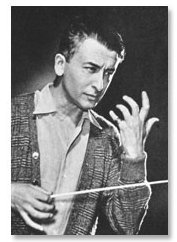
Vladimir Golschmann was born in Paris on December 16, 1893. He studied violin at the Schola Cantorum in Paris and was a notable advocate of the music of the composers known as Les Six. In Paris, he had his own concert series, the Concerts Golschmann, which began in 1919. He became the director of music activities at the Sorbonne, at the behest of the French government. Golschmann also conducted performances at the Ballets Russes of Sergei Diaghilev. In the United States, Golschmann was the music director of the Saint Louis Symphony Orchestra from 1931 to 1958, their longest-serving music director. His initial contract was for 3 years, and the successive contracts were renewed yearly. For the last three years of his tenure, he was named conductor emeritus, during their search for a successor music director. He remained in the US, becoming a citizen in 1957. In his later years, Golschmann also worked with the orchestras of Tulsa and Denver. He died in New York City on March 1,1972. |
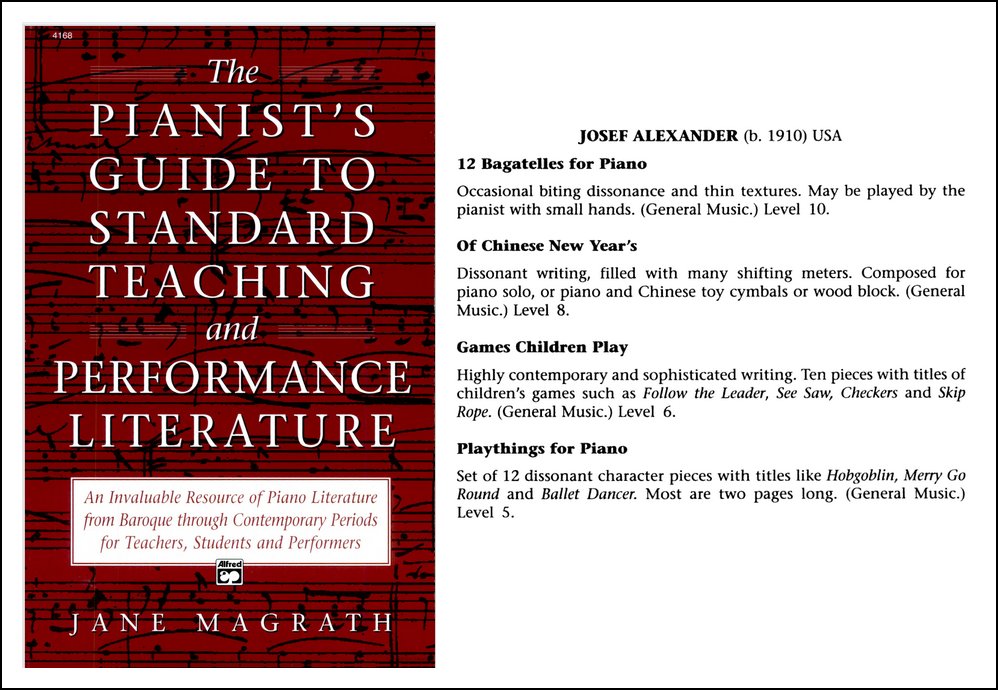
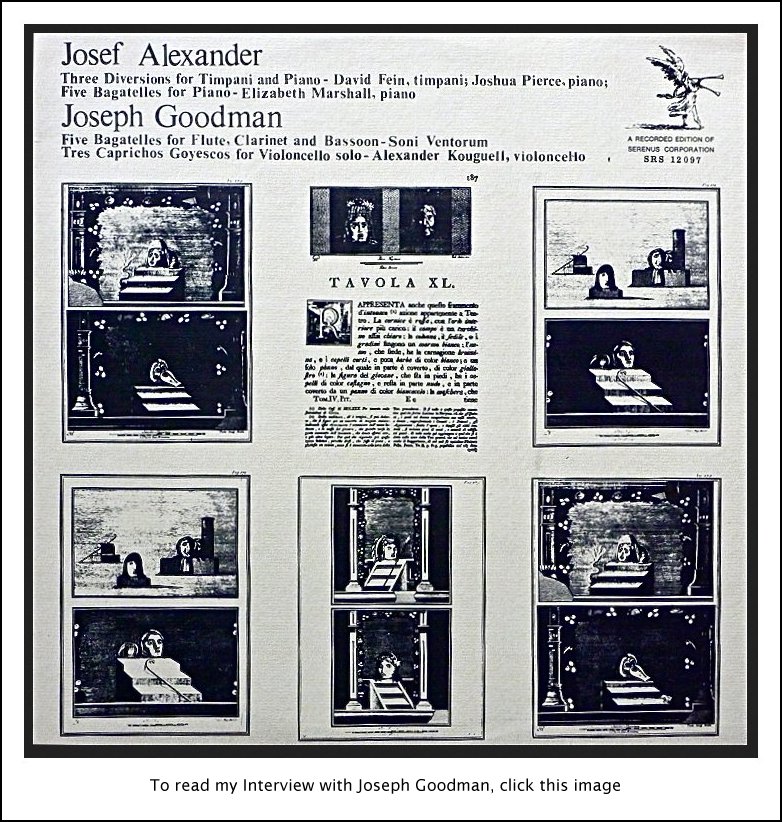 JA: Yes!
JA: Yes!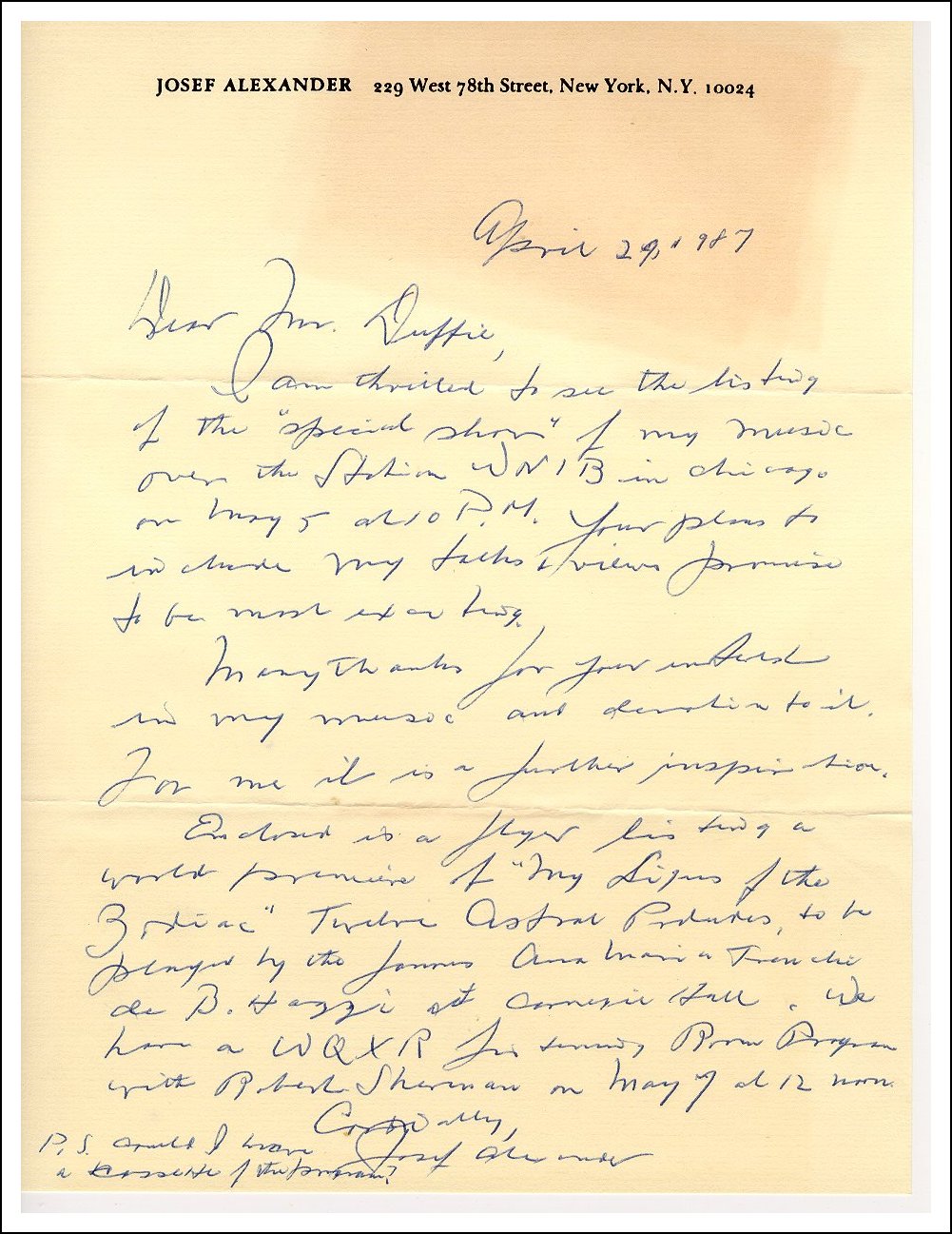
[From a website called "Past Daily"
which includes the audio of this excerpt]
Joseph Alexander – Williamsburg Suite (2 movements) 1943 – NBC Radio orchestra, Henri Nosco, cond. Oct. 19, 1944 – Gordon Skene Sound Collection – The music of Josef Alexander this weekend. An American composer, who was also an educator and spent much of his teaching career in the Music Department at Brooklyn College. He was a prolific composer, yet very little of his large output has been heard much, if at all these days. This piece, the Williamsburg Suite, comes from 1943 and this radio performance of two movements from that suite; Bruton Parish Church and Raleigh Tavern are the world premier performances, via this weekly radio show Music of The New World from NBC from October 19, 1944. As was the case with much of the music from this period, between the Depression and World War 2, it had an inherent focus on Americana. In this case, it’s a musical depiction of Williamsburg Virginia, one of the early settlements during Colonial days prior to the American Revolution. And like so many of the WPA paintings and murals, The Williamsburg Suite was the musical equivalent to one of those murals; spacious and mythic – a portrayal of struggles and triumphs against a landscape of colorful and evocative tone pictures. The music of Josef Alexander has been characterized as steering a middle course between conventional tonality and dissonant modernism. Because we were in the middle of World War 2, music and programs of this sort were considered morale boosts; instilling a sense of patriotism of our country at war – and pieces like The Williamsburg Suite filled the bill. Sadly, because this was the world premier of this work, only two pieces were performed. If the remaining movements were performed on another episode, it’s hard to tell. I don’t think this piece was recorded commercially and, as I said before, much of Josef Alexander’s work has been forgotten and is seldom played. At just a little over 6 minutes, you get a taste of what Josef Alexander’s music was about – not earth-shattering, nor was it saccharine sweet, but a sample of what American Classical music was doing during the War. The NBC Radio Orchestra was conducted by Henri Nosco, who frequently conducted music for this series, as well as many other programs for NBC at the time. |
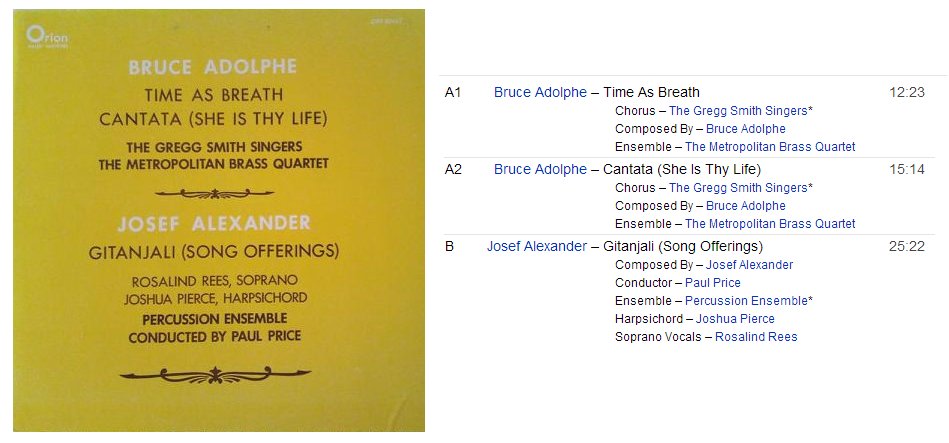
|
 Rabindranath Tagore, also written Ravīndranātha Thākura (7 May 1861 –
7 August 1941), was a Bengali polymath who reshaped Bengali literature and
music, as well as Indian art with Contextual Modernism in the late 19th and
early 20th centuries. Author of Gitanjali and its "profoundly sensitive,
fresh and beautiful verse", he became the first non-European to win the Nobel
Prize in Literature in 1913. Sometimes referred to as "the Bard of Bengal",
Tagore's poetic songs were viewed as spiritual and mercurial; however, his
"elegant prose and magical poetry" remain largely unknown outside Bengal.
Rabindranath Tagore, also written Ravīndranātha Thākura (7 May 1861 –
7 August 1941), was a Bengali polymath who reshaped Bengali literature and
music, as well as Indian art with Contextual Modernism in the late 19th and
early 20th centuries. Author of Gitanjali and its "profoundly sensitive,
fresh and beautiful verse", he became the first non-European to win the Nobel
Prize in Literature in 1913. Sometimes referred to as "the Bard of Bengal",
Tagore's poetic songs were viewed as spiritual and mercurial; however, his
"elegant prose and magical poetry" remain largely unknown outside Bengal.A Pirali Brahmin from Calcutta with ancestral gentry roots in Jessore, Tagore wrote poetry as an eight-year-old. At the age of sixteen, he released his first substantial poems under the pseudonym Bhānusiṃha ("Sun Lion"), which were seized upon by literary authorities as long-lost classics. By 1877 he graduated to his first short stories and dramas, published under his real name. As a humanist, universalist internationalist, and ardent anti-nationalist, he denounced the British Raj and advocated independence from Britain. As an exponent of the Bengal Renaissance, he advanced a vast canon that comprised paintings, sketches and doodles, hundreds of texts, and some two thousand songs; his legacy endures also in the institution he founded, Visva-Bharati University. Tagore modernised Bengali art by spurning rigid classical forms and resisting linguistic strictures. His novels, stories, songs, dance-dramas, and essays spoke to topics political and personal. Gitanjali (Song Offerings), Gora (Fair-Faced) and Ghare-Baire (The Home and the World) are his best-known works, and his verse, short stories, and novels were acclaimed—or panned—for their lyricism, colloquialism, naturalism, and unnatural contemplation. His compositions were chosen by two nations as national anthems: India's Jana Gana Mana and Bangladesh's Amar Shonar Bangla. The Sri Lankan national anthem was inspired by his work |
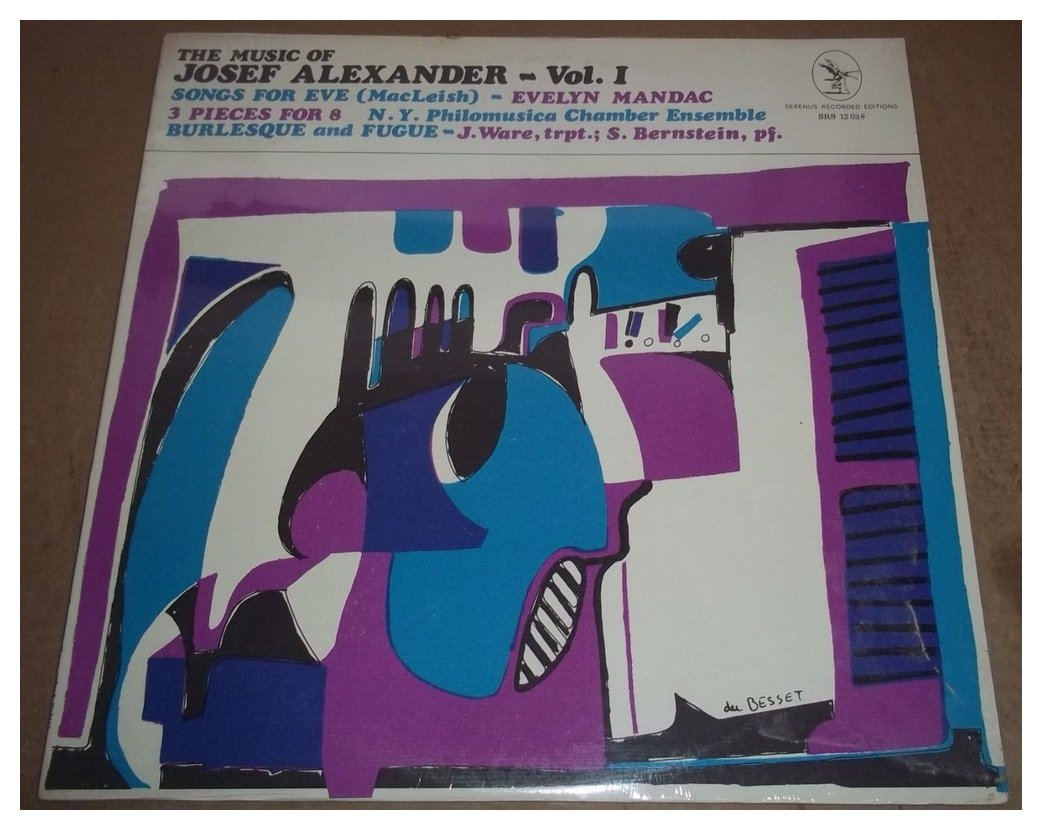
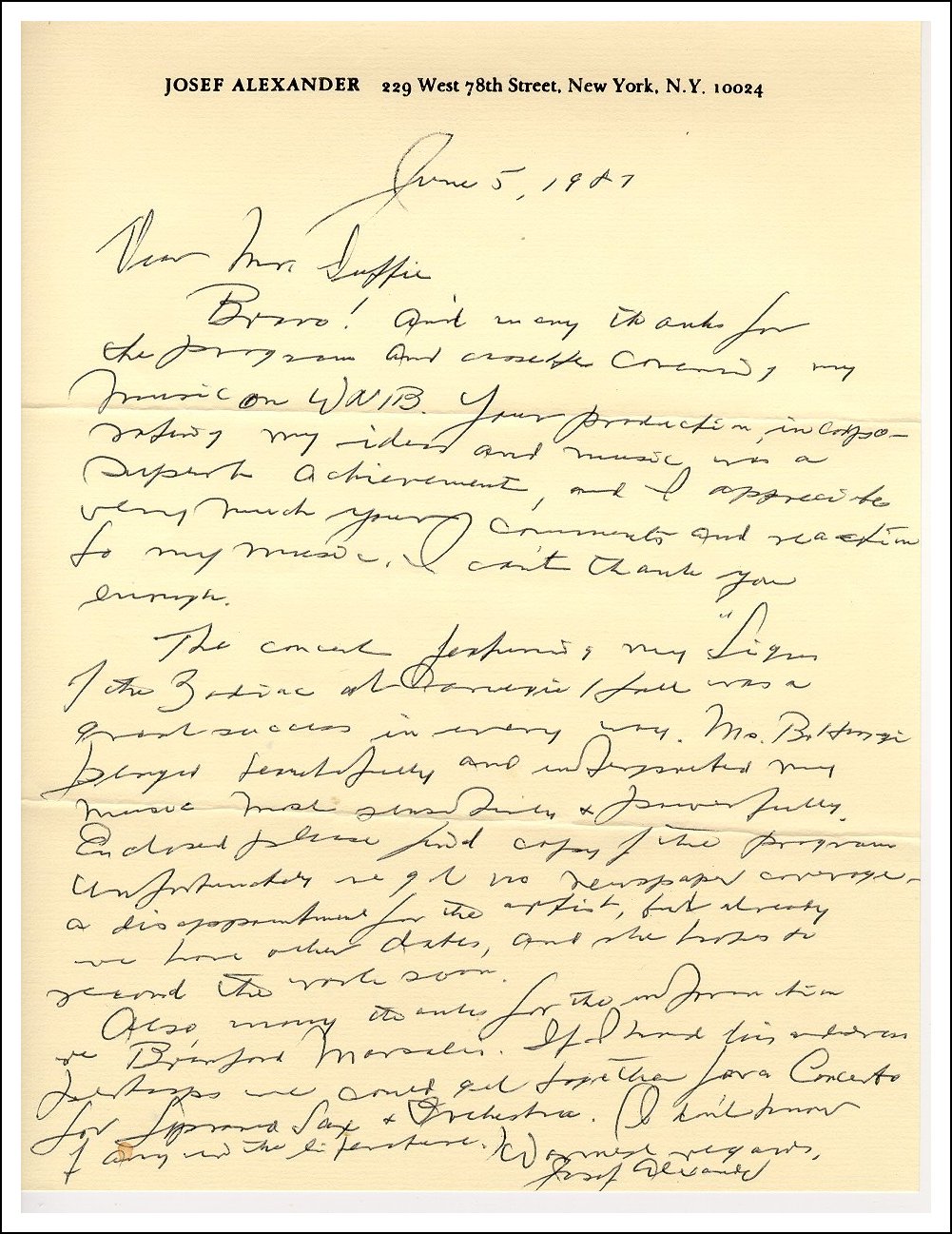
© 1987 Bruce Duffie
These conversations were recorded on the telephone on February 14 and March 28, 1987. Portions were broadcast on WNIB two months later, and again in 1992 and 1997. This transcription was made in 2017, and posted on this website at that time. My thanks to British soprano Una Barry for her help in preparing this website presentation.
To see a full list (with links) of interviews which have been transcribed and posted on this website, click here.
Award - winning broadcaster Bruce Duffie was with WNIB, Classical 97 in Chicago from 1975 until its final moment as a classical station in February of 2001. His interviews have also appeared in various magazines and journals since 1980, and he now continues his broadcast series on WNUR-FM, as well as on Contemporary Classical Internet Radio.
You are invited to visit his website for more information about his work, including selected transcripts of other interviews, plus a full list of his guests. He would also like to call your attention to the photos and information about his grandfather, who was a pioneer in the automotive field more than a century ago. You may also send him E-Mail with comments, questions and suggestions.